Link
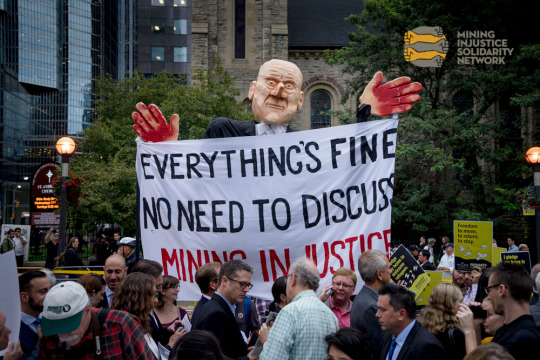
1. The new Canadian Ombudsperson for Responsible Enterprise should become more independent and be granted real powers of investigation.
2. Canadian companies should be required to conduct due diligence around human rights and demonstrate how they are minimizing the risks of adverse human rights impacts.
3. Export Development Canada’s legislation should be reformed to include explicit requirements on international human rights and gender equality.
4. The next government should ditch the 2014 Corporate Social Responsibility Strategy, which was rooted in a mantra of trade promotion, and adopt a Business and Human Rights Strategy that integrates Canada’s political, trade and development mandates.
5. Finally, Canada should join the community of nations who are working to develop and adopt a binding treaty on business and human rights at the United Nations.
Read full article.
2 notes
·
View notes
Link
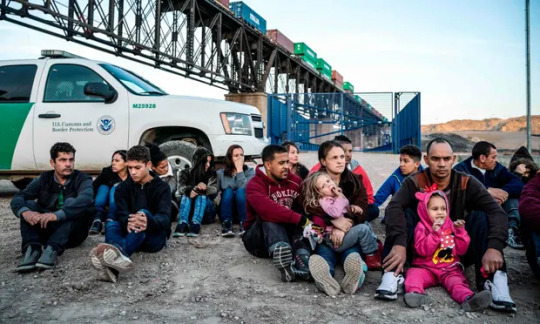
Media outlets and politicians routinely refer to the “flood” of Central American migrants, the “wave” of asylum seekers, the “deluge” of children, despite the fact that unauthorized migration across the US borders is at record lows in recent years. Comparing human beings to natural disasters is both lazy and dehumanizing, but perhaps this tendency to lean on environmental language when describing migration is an unconscious acknowledgement of a deeper truth: much migration from Central America and, for that matter, around the world, is fueled by climate change.
#us immigration#climate change#us-mexico border#environment#migration#guatemala#honduras#el salvador#no one is illegal#Central America
0 notes
Link
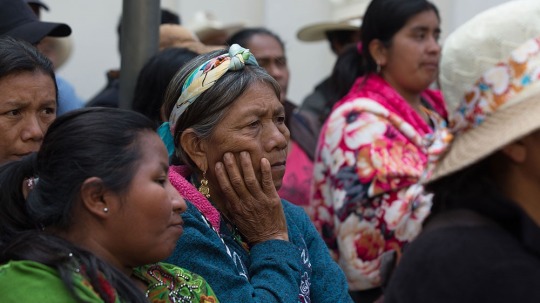
Hundreds of indigenous Achi Mayan survivors, forced to leave their homes by the construction of Chixoy hydroelectric dam in the 1980s, mobilised outside the Guatemalan presidential palace on Wednesday to demand that the government comply with a 2014 agreement to pay reparations for their displacement.
Read full article.
See our video about the Chixoy Dam here.
0 notes
Link
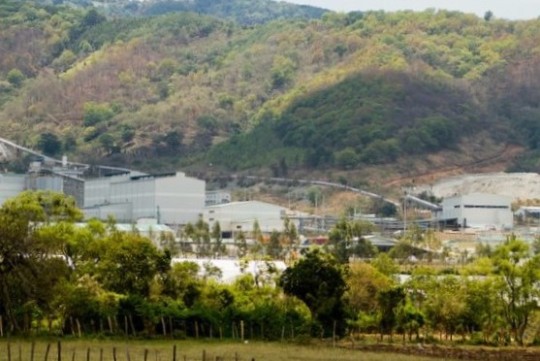
Typical story in investor land rushes as new actors concentrate land ownership in fewer hands, changing land use patterns and, most importantly, conditions of access. Usufruct rights-holders whose rights are either insecure, unrecognized, or not permanent (as is the case of renters) will lose out.
“When I was little, my father leased four or six manzanas (a little more than four hectares) of land and for us it was a joy to work in the abundant harvest. But when the owners of the land sold it to the company, my father was no longer able to plant our staple crops,” added Villagrán, 28, in an interview with IPS from San Rafael.
The mine changed ownership in January, and now the company is called Minera San Rafael El Escobal, a subsidiary of Canada’s Pan American Silver, which according to its website is the world’s second-largest producer of silver. It owns and operates six mines in Argentina, Bolivia, Mexico, Peru, and now Guatemala.
Read full article.
3 notes
·
View notes
Link
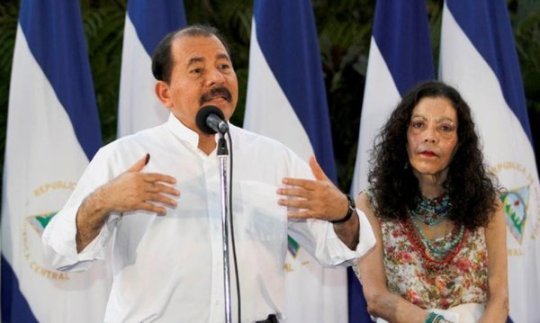
Kenneth M. Coleman writes in AUCLA:
Deploying massive force by the Policia Nacional and by hooded shock troops (often retired military and police [and, we should add, Juventud Sandinista “activists” who allegedly received special training from Police forces for their counterprotest tactics and snitch gangs]), Ortega and Murillo “have won” in the sense that they have ended street protests. In the past month, they have undertaken a systematic effort to silence the remaining voices of dissent.
Ortega’s caudillo tendencies continue. Having gradually, over the past decade, ousted many of his former revolutionary colleagues from his inner circle and blocked the rise of a new generation of Sandinista leaders, Ortega has now sunk to petty levels by withdrawing the registrations of several NGOs, including the Instituto para el desarrollo y la democracia (IPADE, Institute for Development and Democracy), which is led by none other than Jaime Wheelock Román, former Sandinista guerrilla commander, member of the FSLN National Directorate, author of the 1980s agrarian reform, and influential revolutionary intellectual. Ortega, ironically, is a bigger threat to the left in Nicaragua than any of the traditional reactionaries.
Meanwhile, at the other side of the political spectrum, Ortega’s cozy relationship with the business sector - particularly richest-man-in-Nicaragua-by-several-orders-of-magnitude Carlos Pellas - deteriorated as the protests grew and shows no signs of reconciliation. The business community is
clearly of the view that the national dialogue must be resumed to avoid crippling economic sanctions to an economy that has already contracted four percent this year and promises to contract even more dramatically in 2019 without a change of course.
Read full article.
0 notes
Link
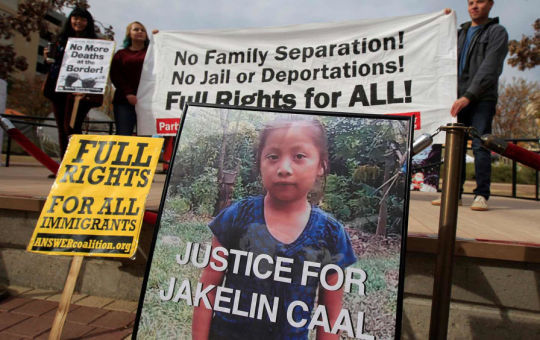
Elizabeth Oglesby and Greg Grandin write:
She died of cardiac arrest, but the real killer was decades of US policy in support of Guatemalan regimes that have displaced and slaughtered the Maya population.
Indeed, Q'eqchi' communities have a long history of forced displacement and migration: from the initial enclosure of Q'eqchi' lands in the late 19th and early 20th centuries in the hands of foreign, criollo, and ladino landowning classes, to the 1954 coup that nipped agrarian reform in the bud and launched massive wave of repression, to the current wave of agro-industrial plantation expansion that has dispossessed an estimated 11% of all Q'eqchi' households.
Read full article.
0 notes
Link

"Trump's real victory in Tuesday's meeting was to get Pelosi and Schumer to repeat the mantra of "border security." [...] When Schumer advocates continuing the status quo in the name of an ill-defined notion of "border security," it reinforces two false and damaging framings of the border and immigration. The first is what researcher and former Border Patrol agent Chris Montoya calls the "border threat narrative," the spurious idea of the southern border as a place of danger. The second is the failed doctrine of "prevention through deterrence," a strategy to obstruct undocumented immigration begun in the 1990s by President Bill Clinton and continued by George W. Bush, Obama and now Trump."
Read full article.
0 notes
Link
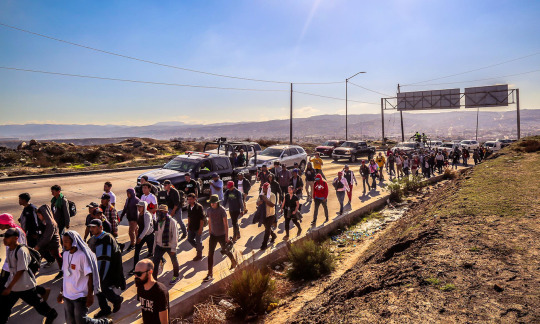
In a sort of companion piece to Amelia Frank-Vitale’s comment on the NACLA website, Crystal Vance Guerra, writing for Yes Magazine argues that migration has become a form of protest for many Hondurans. While Frank-Vitale’s piece sees migration as an act of civil disobedience in the face of an unjust global economic system, Vance Guerra’s piece looks inward at how Hondurans are also shunning their corrupt and repressive government. Golpista president Juan-Orlando Hernández definitely sees it that way, blaming political opponents for organising migrant caravans just to make him look bad (get a grip JOH, it’s not all about you).
Migration has been seen as a development boon (remittances) and as an escape valve for workers who are “surplus to requirements”, a burden on the (usually tiny) welfare state, or a political liability. Vance Guerra writes how in Mexico,
Instead of using organized protest to demand change, people could be encouraged to seek the American Dream, quelling the problem of popular uprisings at the root [...] But now, it seems as if this psychological shift from revolution to migration has circled back, and migration has become the newest form of protest.
This, she argues, is most evident today in Honduras. However, her piece also alludes to how Hondurans have bravely been resisting the golpista regime since 2009 only to be repressed time and time again. In a somewhat disconnected passage, Vance Guerra writes
The saying “la gente puede vivir sin justicia pero no sin esperanza”—people can live without justice, but not without hope—sums up the current mood of the country.
This seems to contradict the general idea behind Vance Guerra’s article, which paints migration as a form of protest against the Honduran regime and not as an act of hopelessness. But that’s precisely what these caravans might be.
That, at least, is the opinion of Honduran journalist Félix Molina, who survived an assassination attempt in 2016. At a recent public appearance in Canada, Molina said that the 2017 electoral fraud was the straw that broke Honduran’s backs. After 9 years of resistance to golpismo, Hondurans are at hope’s end.
But after all, migration could be many things: an act of survival, an act of civil disobedience in the face of an unjust global order, a sign of political hopelessness, as well as a parting shot at the assholes who drove you to this.
Read full text.
0 notes
Link
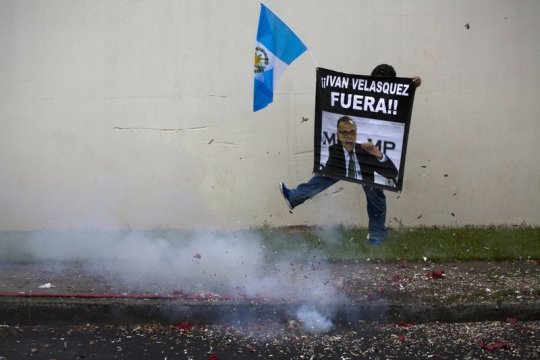
The move marks the latest salvo from Morales in his running dispute with the commission, known as CICIG for its initials in Spanish, after the president refused to renew its mandate in the country earlier this year and then barred its chief from returning to Guatemala from a business trip to the United States.
In a notice in the official publication Diario de Centroamerica, the Foreign Ministry said the investigators’ credentials had been voided and they were being asked to return them. It added that they no longer “enjoy the privileges and immunities” of their posts.
Read full article.
UPDATE: on 19 December 2018, it was reported that the 11 officials in question have been ordered to leave the country. Read more here (EN) or here (EN).
#Guatemala#CICIG#corruption#pactodecorruptos#pacto de corruptos#corruptos#jimmy#morales#jimmy morales
0 notes
Link
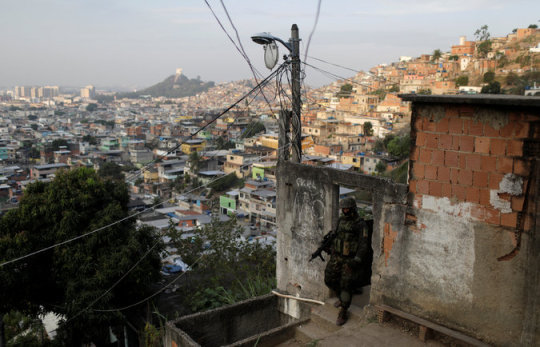
Alejandra Sánchez Inzunza y José Luís Pardo Veiras escriben en el New York Times Español:
Más de 2,3 millones de personas han sido asesinadas en lo que va del siglo; [...] Sin embargo, a diferencia de una guerra, la violencia que vemos en América Latina no arrasa las grandes ciudades, no genera protestas públicas masivas y tampoco se investiga para llevar a los culpables ante la justicia. Una razón es que las mayores tasas de homicidios de los países latinoamericanos se concentran en un puñado de calles en lugares marginados, como la Baixada Fluminense, San Agustín o Soyapango. En estos sitios la violencia se ha normalizado. [...]
A pesar de la adopción de políticas policiales punitivas, el homicidio en América Latina ha crecido hasta quintuplicar la media mundial. [...] No obstante, la percepción de que son una solución sigue siendo más poderosa que la realidad: el 61 por ciento de los latinoamericanos apoya políticas represivas y militaristas.
Es necesario luchar contra políticas basadas en el miedo hacia el otro y generar nuevas maneras de enfocar el problema de la violencia; narrativas que expliquen por qué matamos más que en cualquier otra parte del planeta. Solo así podremos exigir que se apliquen medidas que sí sean efectivas contra el homicidio, como la vigilancia comunitaria, el patrullaje inteligente y una reforma policial.Esto ya ha empezado a ocurrir.
En años recientes, Bogotá, São Paulo y San Pedro Sula han reducido los homicidios entre un 70 por ciento y un 90 por ciento al generar estrategias que permiten atacar la desigualdad, el desempleo y la fragilidad del imperio de la ley en lugares con altos niveles de homicidios.
Leer texto integral.
0 notes
Link
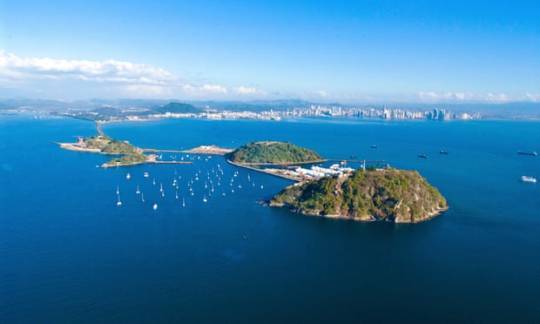
As they say, location-location-location! Also, diplomacy as done by the petty and immature.
China’s plans to build a new embassy on the islands were derailed after US officials pressured the government of Panama’s president, Juan Carlos Varela, to withdraw its offer of a four-hectare plot, according to senior Panamanian and diplomatic sources.
“Of course there was pushback from the US: they weren’t going to allow a huge Chinese flag next to the entrance to the canal,” a diplomatic source told the Guardian. “But local pressure was also important. Handing over that land to the Chinese would have been a hugely unpopular move by the Varela government.”
Read full story.
0 notes
Link
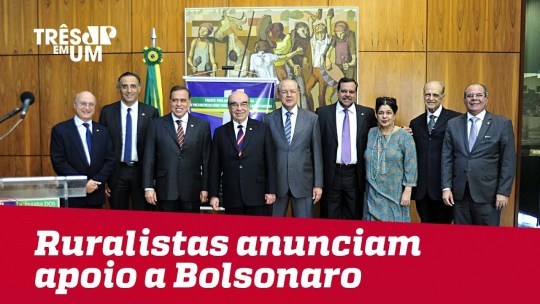
La interpretación constitucional que existe en Brasil respecto de que las empresas locales que son mayoritariamente de propiedad de firmas extranjeras no pueden adquirir terrenos de forma libre podría flexibilizarse durante el próximo gobierno del electo presidente, Jair Bolsonaro. [...]
En la reunión, este último afirmó que Brasil deberá establecer un marco jurídico que apunte a terminar con las restricciones de compras de terrenos a inversionistas extranjeros, que no los discrimine por su origen, pero que asegure la participación nacional en áreas estratégicas.
Leer texto completo.
0 notes
Link
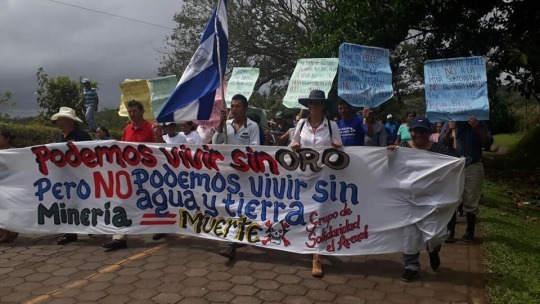
En su oportunidad Heizel Torres oficial de minería del Centro Humboldt denuncio que el gobierno de Nicaragua modificó las normas ambientales en beneficio de las empresas mineras, con la eliminación de los procesos de estudio para el impacto ambiental, como se evidencia en este caso de la Mina la India. Este acto arbitrario que ha realizado el gobierno violento el debido proceso que debe gozar la comunidad en establecer una consulta previa libre e informada y con consentimiento o no de la nuestra comunidad ante un proyecto extractivo que atenta contra la salud y los ecosistemas en la localidad.
En otro comunicado, dicen:
En julio de este año, once miembros de la comunidad Santa Cruz de La India, con el apoyo de ONG´s ambientalistas, pusieron una denuncia ante la CAO, un mecanismo de recurso independiente para la verificación de inversiones de la Corporación Financiera Internacional (IFC) del Banco Mundial. [...]
La queja también cita la criminalización sistemática de acciones de protesta que la comunidad ha llevado a cabo ante la amenaza del proyecto. Desde el pasado 15 de noviembre Santa cruz de La India fue ocupada por efectivos policiales y miembros de las fuerzas antimotines para intimidar a la población y prevenir la participación de comunidades organizadas que se oponen al proyecto minero en las audiencias del equipo de verificación de la CAO. Después de la visita del equipo de verificación, miembros de la comunidad reportan la presencia continua de las fuerzas policiales, el allanamiento y registro ilegal de viviendas, y la interrogación ilegal a miembros del movimiento anti-minero.
Leer texto completo.
0 notes
Link
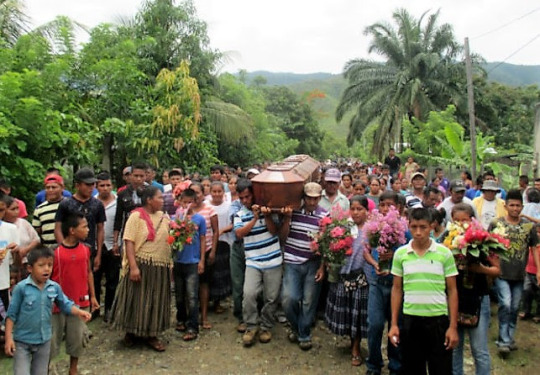
Photo: El Estor residents attend the May 2017 burial of Carlos Maaz, an Indigenous Maya Q'eqchi' fisherman shot and killed by police as they broke up a protest against mining pollution in eastern Guatemala. Photo by Sandra Cuffe.
Guatemalan president Jimmy Morales' drive to undermine the International Commission Against Impunity in Guatemala (CICIG) is putting indigenous leaders at greater risk, writes Sandra Cuffe.
The CICIG’s mandate is to help build a judiciary system independent of political interference and free of corruption. The Commission’s work has given hope to many human rights defenders, indigenous leaders, and other activists who face criminalisation at the hands of the state (i.e. politically motivated and baseless criminal prosecution) and violence at the hands of police, private security, and criminal networks. While such repression and intimidation of social movements is still common, the CICIG has been working closely with public prosecutors on key cases. The visibility of the CICIGs work is creating an impression that, albeit slowly and gradually, ‘the times are a-changing’ and that those who wish to attack social movements can no longer count on going unpunished.
Indigenous leaders and human rights activists worry the resulting political crisis is sowing the seeds for increased and more generalized repression across the country, and that it could place activists and community leaders across the country further at risk. The political crisis is a setback for recent advances in upholding the rule of law in Guatemala, which have been due in no small part to the establishment of the anti-impunity commission that is now under attack. As checks and balances on power are eroded, so too are the institutions that would hold perpetrators accountable for attacks on Indigenous leaders, land-defenders, and community activists.
Read full article.
0 notes
Link
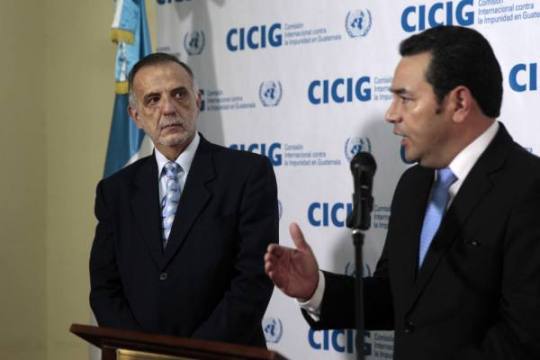
The ferocity of Morales’s attacks against CICIG may not be fueled by confidence of victory but rather by a deep and desperate fear of justice after January 2020 – a basic survival instinct of people who know they have crossed a line. The final outcome of all this will be, as it should, in the hand of voters. The real issue for Guatemala might not be the fight between Jimmy Morales and CICIG, but rather between the Pacto and the huge number of voters beyond their grasp who are sick and tired of the corruption and impunity. U.S. policy toward Guatemala has shifted from supporting CICIG and its efforts to investigate corruption and build Guatemalan institutions committed to the rule of law, to turning a blind eye in thanks for an apparently compliant ally and for completely unrelated reasons, such as the location of the embassy in Israel. While Washington applauds the government’s (still unfulfilled) promises to stanch the northbound flow of migrants, it allows one of the biggest causes of migration – corruption and impunity at all levels of society – to continue unabated.
Read full article.
0 notes
Link
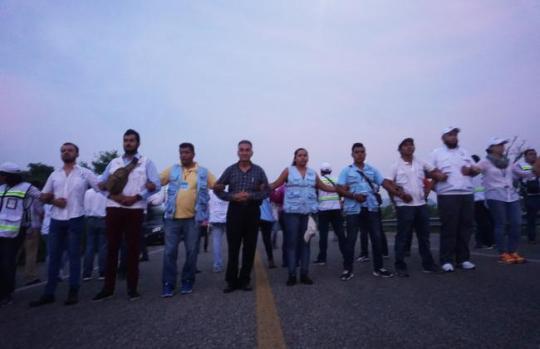
“The migrant caravan is a literal and massive example of how mass undocumented migration is a form of civil disobedience against a global order,” writes Amelia Frank-Vitale for NACLA.
The global order in question is one where economic and development imperatives render hundreds of millions of people worldwide redundant to the needs of global capital. Under economic liberalisation, flows of capital are increasingly controlled by transnational corporations and investors. the resources and labour power of the Global South are made available, as commodities, to transnational circuits of accumulation. This system is predicated on unequal flows: capital can move where it wants, but people are locked into certain territories by national borders. A large pool of under-employed, peasant, or informal workers keeps wages low and transnational profits high. Attempts at reform are thwarted, sometimes by brutal government repression, aided and abetted by global powers. This is particularly evident in places like Guatemala and Honduras.
Caught between an unforgiving global economy and violent street gangs, a symptom of political, economic, and social decay caused by that very same global order, people in the Northern Triangle have survived any way they can. Under these circumstances, migration has become a routine component of household livelihood strategies. But this strategy is denied by the very global order that leaves them no other option. Migration is thus itself an act of civil disobedience against the unjust laws that prevent human labour from moving with the same liberty afforded to goods, services, and capital.
Frank-Vitale goes on to profile Mario, a young Honduran, whose experience reflects the caravans’ similarities to traditional acts of civil disobedience:
Mario had left San Pedro Sula after two of his friends were killed for not cooperating with the local gang’s plan to involve them in a drug-selling business. Mario worked printing t-shirts—not the graphic design part, but the mechanics of building the machines that printed them. He loved his work. He and his two friends had, together, decided to resist the mara’s plan. It was sheer luck that he wasn’t with them the night they were gunned down. He fled shortly after that; he and his neighbors knew that he was marked for death if he stuck around.
He joined up with the spring caravan and became interested in the group that organized it, Pueblo Sin Fronteras (People Without Borders). Rather than continuing on to the United States right away, he stayed with them in northern Mexico. He joined a hunger strike to demand humanitarian visas for a group of migrants. He went to trainings and workshops about human rights, the legal process, and civil disobedience. As we drove across the isthmus of Tehuantepec, he told me about the civil rights movement in the United States. How people sat at restaurants where they weren’t allowed to eat, but they were peaceful, and they changed the laws. He liked that, the idea of peacefully resisting. Mario didn’t need to be a part of this caravan at this moment, but his experience with the last once sparked something in him. He’s here to help, to organize, to teach. He’s willing to walk across Mexico, again, in solidarity.
Read full article.
0 notes
Link
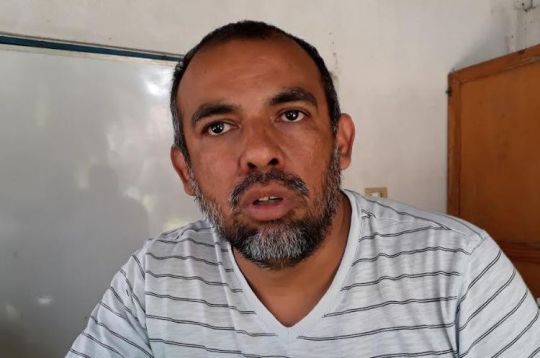
¡Libertad para Gonzalo!
Gozalo Hernández Cáceres fue detenido por haber participado en un plantón, lo cual resulta prohibido por el regimen Orteguista. Cuando conocimos a Gonzalo, se reivindicaba como Sandinista. Creía en la Revolución y todo lo que representaba y sigue hoy con las mismas convicciones, de solidaridad, de libertad, de dignidad y de justicia para los campesinos y obreros de Nica y del mundo entero. No tengamos miedo de Jair Bolsonero, es un fascista descarado y un día venceremos. La verdadera amenaza a la izquierda latinoaméricana y mundial son gente como Daniel Ortega. El Orteguismo es un cáncer que está matando (¿o ya mató?), paulatinamente, desde adentro toda la esperanza que nos dieron el Sandinismo y otros movimientos obreros, campesinos y revolucionarios de América. ¿Qué hacer? Los Zapatistas lo tienen claro: sin líderes, sin presidentes. El poder (o su manifestación caudillista en ese caso) corrompe todo.
Leer artículo.
0 notes